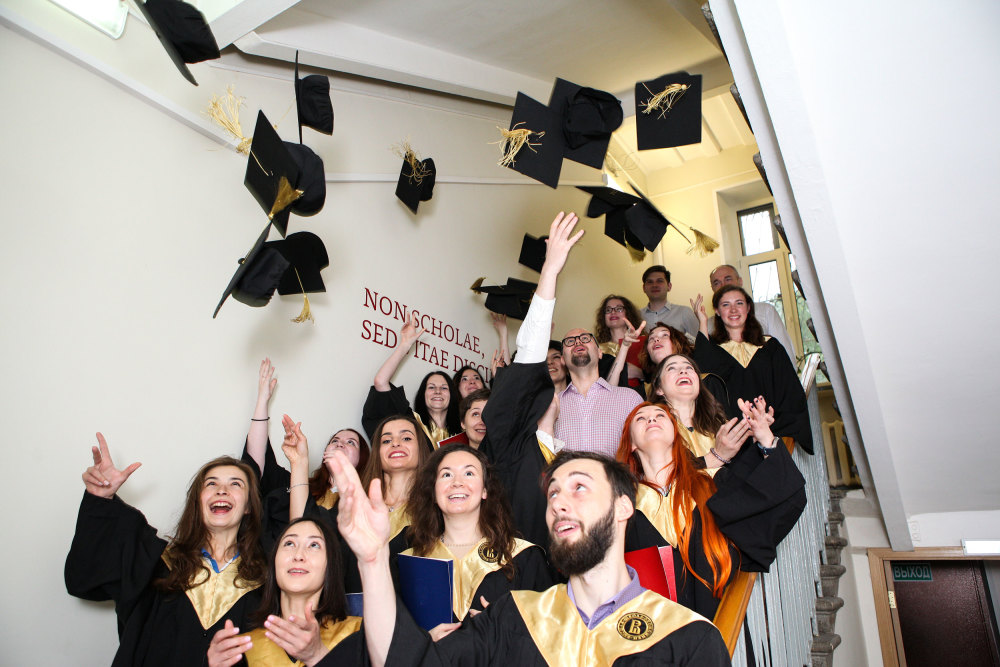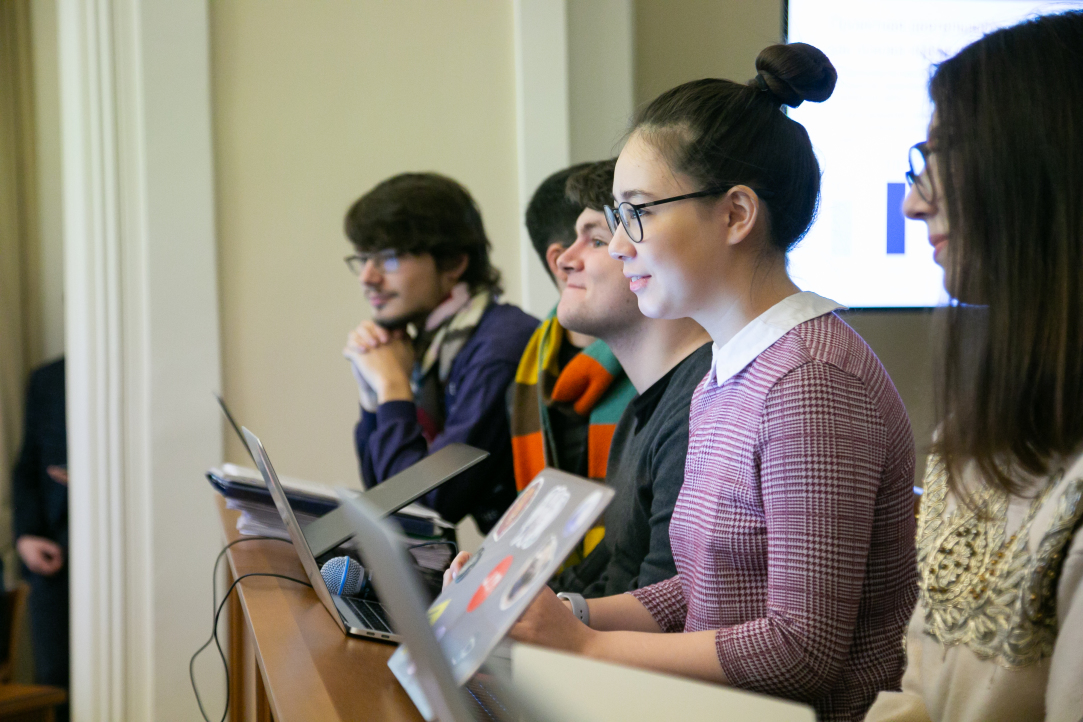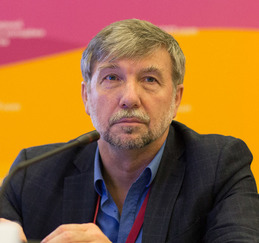- A
- A
- A
- АБB
- АБB
- АБB
- А
- А
- А
- А
- А
HSE University's New Master's Standard
At the end of 2020, the Academic Council of HSE University approved a new educational standard for Master’s programmes, whereby the options for learners have been significantly expanded, while project work is now even more of a core factor. The standard sets forth the general framework for how Master’s programmes function, as well as provides more opportunities for learners to design their individual educational trajectories. The standard shall come into effect in the 2021/2022 academic year for 33 participating programmes at the pilot stage. The HSE Look met with Sergey Roshchin, Vice Rector for the University’s degree programmes, and discussed the new measures.
HSE Vice Rector
Background Information
Russia’s system of education, owing to its significant state regulation, had been in many ways quite rigid compared to what one might see at academic institutions in North America or Western Europe, especially in terms of the extent a university can develop its own educational programmes. In 2020, the Russian President presented new objectives for the Russian system and the Ministry of Science and Higher Education was charged with creating options for boosting flexibility with respect to educational programmes. As such, Russian universities are now trying to identify models, which would help them to realize these goals.
As a national research university, HSE University has the right to develop its own educational standards. HSE University has exercised this right and our first independent standards appeared in 2009. At the end of 2019, the Academic Council approved a new (third by my count) version of the educational standard for Bachelor’s programmes. And now, it’s time to update the Master’s standard.
Before the introduction of a new standard at HSE University, there were various educational standards in effect for 40 fields of study. So, from out of 40 different HSE University’s standards, we have moved to a single document. This unified standard creates a general framework for Master’s programmes, by delegating to respective programmes the determination of professional skills, types of professional activities, and key learning outcomes, as well as the specification of recommended courses to students.
For instance, the standard sets forth six universal competencies, which should be attained by all Master’s graduates: critical analysis of problems; project management; leadership and teamwork; the application of contemporary communications technologies; understanding cultural diversity; determining and carrying out priority areas of one’s own activities with an emphasis on improving them.
Master’s programmes now feature variability in their Major component, that is, the selection of courses, which form the core of one’s professional skills development. This differs from Bachelor’s where the Major remains uniform for several programmes taught under a specific field of study.
The new Master’s standard comes into effect in two stages: during the 2021/2022 academic year - for students admitted in 2021 to those 33 programmes that take part in the pilot stage; all remaining programmes shall be subject to the standard effective from the 2022/2023 academic year.

Variability
Practically all of HSE University’s 50,000 students already have their own individual curricula. Many elective components existed prior to the new standard: students could select electives under their Major, choose their Minor, while pursuing various specialized courses. This has become a fairly routine approach. However, individualization isn’t the goal in itself. Rather, our purpose here is to enhance the quality of education and, with this in mind, individualization is one of the instruments we can use to achieve this.
The new standard foresees more opportunities for Master’s students to personalize their educational trajectories. Although instruction will be held within the framework of a single programme, each learner may play a major role in designing their educational trajectories according to their own interests, career plans and demand for certain skills. With this in mind, learners can pursue one or several Master’s programmes, or one programme with elements from another, or construct their very own unique trajectory.
A Project-based Approach
The new standard should also facilitate the turn to a project-based approach, i.e., enhancing the project component under HSE University Master’s programmes and bringing in researchers, experts and analysts to work directly with learners. In practical terms, half of the Master’s instruction should be focused on project work.
We face two key challenges here. The first is how the academic community may view a given project. There’s a particular position whereby Master’s studies should aim to lay the groundwork for a graduate’s academic activities and research. But this really isn’t the case. Firstly, the academic market is not limitless. Secondly, there are many various interesting professional spheres where graduates can use their skills. As such, when considering project activities, we have in mind projects that include in-depth analytical work, however, they don’t necessarily need to be concluded with what we call a scientific result.
And the second challenge: projects are best when they are not so much for learning purposes but rather “real-life” works, that is, when they come from employers as real tasks or from within the University. However, real projects demand actual results, not just study. One of the core challenges is combining the efforts of project clients and academic peers, who can build projects in such a way so that students may participate.
Laboratories of all stripes (project-based, research-based, and international) and simply expert teams that conduct analytical activities as requested by various clients are involved in the organization of project work. Another example, when the entire educational process hinges around project work, would be design. The scope whereby students may be involved shall be expanded, as well as diversity in terms of organization.

Three Educational Tracks
One of the key innovations in the new standard is the inclusion of several tracks under the same Master’s programme – general, applied and research-based.
The general track is for students who wish to expand their knowledge in a particular field studied by them at a previous degree level, as well as for those learners with an interest in adding new skills from another area or pursuing a new field of study.
The applied track is intended for students, who are interested in acquiring a narrow spectrum of professional competencies, which are usually connected with the demand from particular segments of the job market. Applied studies have particular emphasis on practical skills development with students completing internships at external partner companies or subdivisions of HSE University itself.
The availability of general and applied tracks is related to how Master’s programmes are positioned. There are those that were initially customized and are therefore intended for niche segments, thus requiring a very specific range of professional skills. On the other hand, there are those that are integrated and feature various tracks thereunder. Tracks are selected upon admission to the University, but there is some flexibility in terms of molding one’s curriculum while studying.
The research track is for students, who have previous in-depth research experience and have already developed a particular research topic prior to being admitted to Master’s studies. As such, learners work on individual research projects under the guidance of an academic supervisor, while holding affiliation with one of HSE University’s doctoral schools. The research track is directly related to the combined Master’s-PhD track, which is for students who are finishing Bachelor’s studies and applying for graduate studies, and who have already developed research projects and published articles. This year, HSE University is holding its second admission to this track. Last year, 45 learners were accepted and this figure should go up to 75 this year.

Five Modules
Under the new standard, each student’s individual curriculum should consist of five modules:
1. The “key seminars” module is intended for designing personal learning outcomes, as well as acquiring an in-depth understanding of best practices and taking part in research through seminars held both by respective subdivisions and with the involvement of visiting practitioners and leading researchers.
2. The “practical” module develops students’ competencies, thereby allowing them to deal with practical tasks in their preferred professional field. For instance, the module includes internships, term papers, thesis work and composition of academic articles.
3. The “professional” module (Major) consists of courses, which can help learners achieve their key learning outcomes. Students may select courses from the University-wide Master’s pool for their Major component, in line with a particular set of criteria.
4. The “supplementary” module (MagoLego) consists of courses from particular fields, which can help students attain their individual learning outcomes in addition to key learning results, or enhance such key results. Students may also take adaptive courses under this module.
To select courses for Major and MagoLego modules, students may select courses from the University-wide Master’s pool, for which learners meet respective prerequisites and have an option to pursue courses subject to the availability of vacant spaces and whether the programme is tuition-based or not. Furthermore, Major courses should be agreed upon with track supervisors, while MagoLego courses may be selected at students’ own discretion.
5. The “final state certification” module includes a thesis defence and may include a state examination.

Key Persons and New Skills
Will students be stressed when facing the requirement to choose a track? There is the problem of selecting a trajectory and respective modules. However, this shouldn’t be considered so much a stressful situation but a ‘complex task’, which must be carried out without all of the necessary information available, whereby students need to make a choice right away, but what the result of this could be is not known. Therefore, it is very important to develop various services, which can assist learners in the selection process. For seven years already, the University has been operating its Minor selection and we already have considerable experience devising information resources for choosing one out of 70 possible Minors (which is not directly related to one’s Major).
In addition to academic supervisors and project/thesis supervisors, Master’s students across tracks all get to work now with track supervisors. Track supervisors help learners to design their individual educational trajectory, set out their learning tasks and objectives, monitor their progress, and, if necessary, adjust their development so that core and individual learning outcomes are attained; they also help in the selection of courses, topics for projects and term papers, internship options and find the most suitable thesis supervisors.
In addition to track supervisors, the entire HSE University community is being instilled with new skills, so that the new standard can be properly implemented. Firstly, there is a focus on skills for administering more complex educational processes. The new standards effectively ensure the University’s shift towards its new role as a platform, thereby introducing a wide pool of various elements, used to form different clusters and tracks. With respect to the process of individualization, this doesn’t necessarily mean that it will be developed strictly on an “on-demand” basis. Individualization is implemented at the intersection of two vectors: on one hand, there’s the proposal of the academic community at large based on their knowledge about respective professional spheres; on the other hand – demand and interest on the part of students, especially in light of their motivation and future vision of themselves. Our task is to combine these two vectors properly.
Furthermore, skills, whereby project activities become a core part of the educational process, are required. Projects take on a life of their own throughout their own cycles and sometimes don’t fit into a strict academic timetable. At the same time, students are a type of “ebb and flow”, and this presents the issues, such as how to take account of their project efforts effectively, especially if a project is long-term.
Overall, it is paramount to note that the key objective here is not the implementation of the new standard in itself, but our progress towards high-quality improvements in education, which, in turn, means the success of HSE University’s graduates. And this success may be measured in their working and social life, their pay rates, and career achievements: some people write articles, while others are creative designers of new projects and IT systems. With that in mind, HSE University is continuing to develop its educational model, which can ensure the career and personal success of its graduates.
